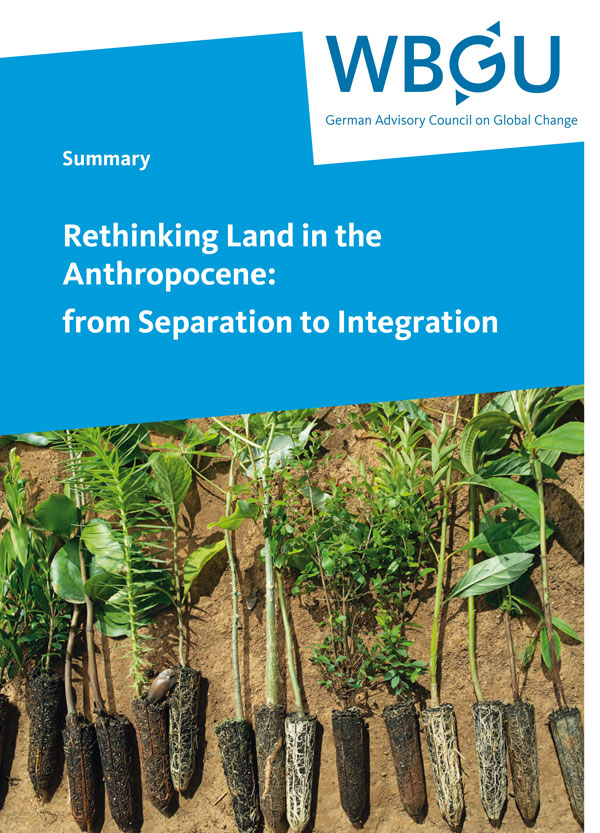
In its flagship report 2020 entitled “Rethinking Land in the Anthropocene: from Separation to Integration” the Advisory Council on Global Change (WBGU) addresses the issue of global land management from the perspectives of climate protection, biodiversity conservation and food security. These three areas are increasingly in conflict with each other, a situation the report describes as a “trilemma”. Possible solutions (“multi-gain strategies”) include the transformation of food systems (moving away from consumption of animal products), the diversification of agriculture (greening), as well as rewilding land and expanding protected areas – topics that play a central role in biocyclic vegan agriculture.
Biocyclic vegan agriculture is not yet presented with its full potential, but it is at least mentioned as a perspective in the context of “climate-sensitive organic agriculture”:
“Research approaches for climate-sensitive organic agriculture lie in the search for ways to reduce the number of animals as much as possible without causing bottlenecks in the supply of organic fertilizers, in the optimization of no-till, direct seeding methods (Berner et al., 2008; FiBL, 2019), and in the development of vegan systems that dispense with animal production altogether (biocyclic-vegan.org, 2020).” (Flagship Report 2020, English edition, page 153, Box 3.3-11)
The reference to biocyclic vegan agriculture by this high-profile panel of experts is another important step towards its being perceived by the public, as well as towards the recognition of the solutions it offers with regard to the fundamental global challenges.
